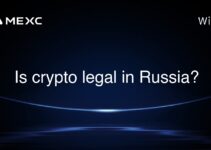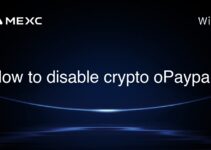Trading futures in the context of Islamic finance is a complex subject, with opinions varying among scholars. Generally, traditional futures trading is not considered halal (permissible) under Islamic law due to elements of excessive uncertainty (gharar), speculation (maysir), and the involvement of interest (riba). However, there are Sharia-compliant financial instruments that mimic futures contracts, designed to adhere to Islamic principles.
Importance of Halal Trading for Investors
Understanding whether futures trading is halal matters significantly for Muslim investors and traders who wish to adhere to the ethical guidelines and principles of Islamic finance. The global Muslim population, which accounts for about a quarter of the world’s population, seeks investment opportunities that align with their religious beliefs. This adherence not only affects personal and community finance but also influences broader market dynamics as Islamic finance continues to grow worldwide.
Principles of Islamic Finance
Islamic finance is based on several key principles: prohibition of interest (riba), avoidance of uncertainty (gharar), risk-sharing, and investments in activities that do not violate Islamic ethical norms (haram activities). These principles ensure that investments promote economic justice and contribute to societal development.
Examples and Applications in 2025
By 2025, the landscape of Islamic finance has evolved with technology playing a pivotal role. Innovations such as blockchain and smart contracts have enabled the development of Sharia-compliant derivatives, including futures. For instance, platforms like MEXC have been instrumental in integrating these technologies to offer halal trading solutions, ensuring transparency and compliance with Islamic jurisprudence.
Another example is the emergence of Islamic financial products like ‘Salam’ contracts, which are similar to futures but structured in a way to comply with Sharia law. These contracts involve advance payment for goods that are delivered at a future date, with all terms clearly specified to avoid uncertainty.
Updated Insights from the Islamic Finance Sector
Recent studies in 2025 indicate that the Islamic finance sector has grown by 10% annually, reaching over $3 trillion in assets. This growth is reflective of the increasing demand for financial products that conform to Islamic principles. Moreover, countries like Malaysia and the UAE have become hubs for Sharia-compliant financial services, offering a wide range of products from halal equities to sukuk (Islamic bonds).
Relevant Data and Statistics
The expansion of Islamic finance has been supported by demographic and economic data. For instance, the Muslim population’s growth rate surpasses the global average, amplifying the need for halal financial services. Additionally, a 2025 survey revealed that 70% of Muslim investors prefer investments that are compliant with Islamic finance principles, highlighting the significant market potential for halal trading options.
Conclusion and Key Takeaways
In conclusion, while traditional futures trading is generally not considered halal, there are Sharia-compliant alternatives that cater to the needs of Muslim investors. The development of these alternatives is crucial not only for adhering to religious beliefs but also for tapping into a rapidly growing market segment. Key takeaways include:
- The importance of understanding Islamic finance principles for investors looking to engage in halal trading.
- Technological advancements such as blockchain and smart contracts are pivotal in creating Sharia-compliant financial instruments.
- Platforms like MEXC are at the forefront of providing halal trading solutions, enhancing the accessibility of Islamic finance.
- The significant growth of the Islamic finance sector indicates a robust demand for Sharia-compliant financial products.
For Muslim investors and the broader financial community, staying informed about developments in Islamic finance and the availability of halal trading options is essential for making ethically aligned and potentially profitable investment decisions.



